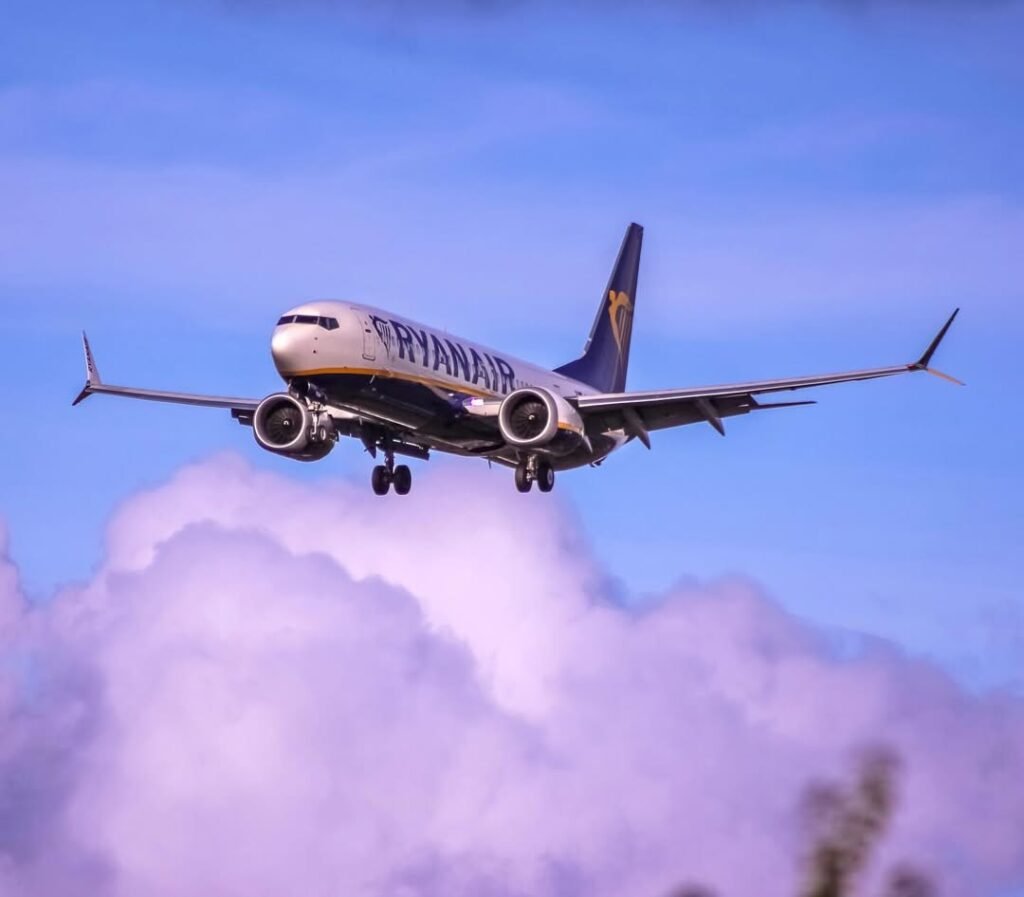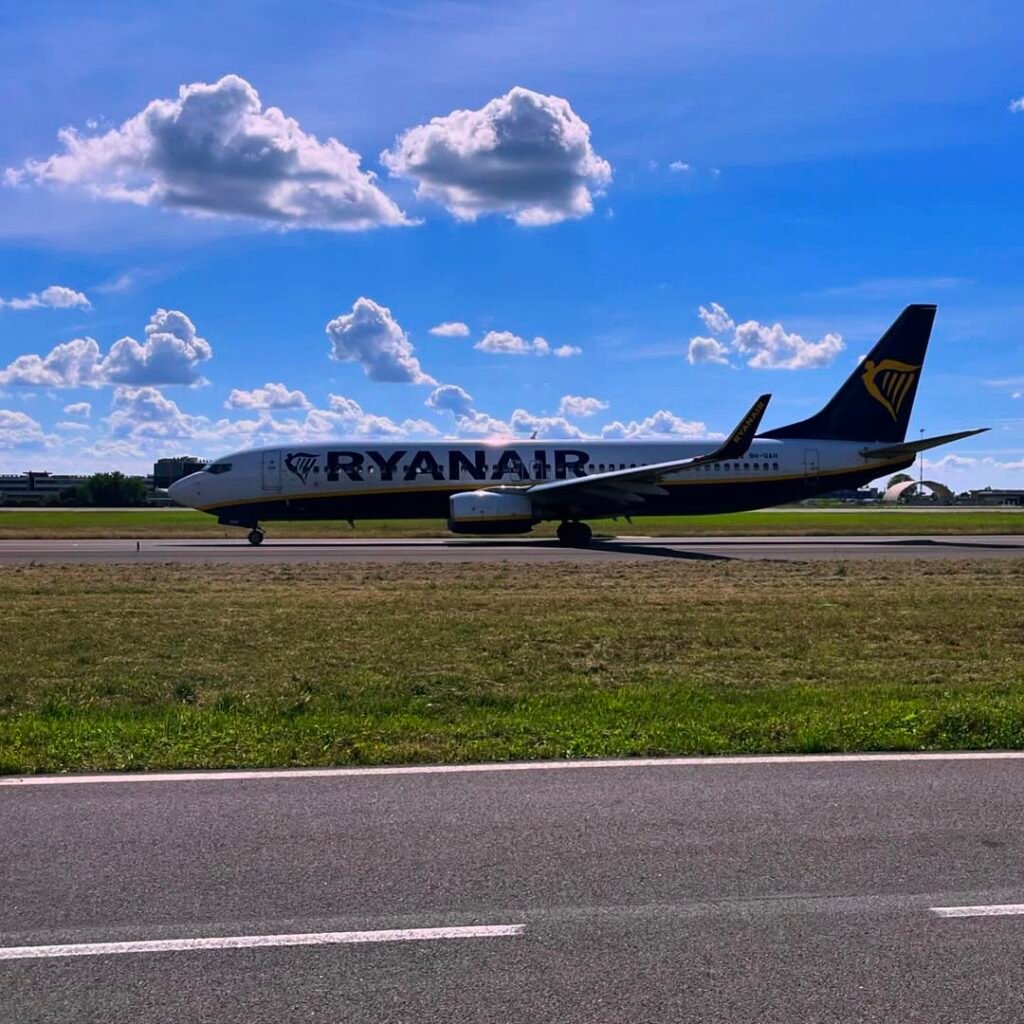Ryanair, Europe’s largest low-cost airline, continues to make headlines across the UK. With its bold business moves, record passenger numbers, and evolving policies, the airline remains a central figure in the nation’s travel conversation. As summer 2025 unfolds, Ryanair’s impact on British travellers, airports, and the wider economy is more pronounced than ever.
Record-Breaking Passenger Numbers and UK Growth
Ryanair’s growth story is hard to ignore. In June 2025, the airline carried 19.9 million passengers, a 3% increase compared to the same month last year. Over the past 12 months, Ryanair has transported more than 202 million passengers, marking a 7% year-on-year rise. This surge cements Ryanair’s position as the first European airline to carry over 200 million guests in a single year.
The UK remains a crucial market for Ryanair. The airline recently celebrated a milestone at Newcastle Airport, having served over 8 million passengers since 2003. Ryanair’s investment in Newcastle includes two based aircraft, representing a $200 million commitment and supporting more than 800 local jobs. The summer 2025 schedule features 140 weekly flights from Newcastle alone, connecting British holidaymakers to popular destinations such as Alicante, Barcelona, and Ibiza.
Navigating Disruption: Flight Cancellations and Global Events
Despite its impressive growth, Ryanair has not been immune to global challenges. In June, the airline cancelled more than 800 flights, primarily due to the ongoing conflict in the Middle East. While this figure may sound significant, it represents less than 1% of the 109,000 flights operated that month. Ryanair’s ability to maintain a 95% load factor, even amid disruption, highlights its operational resilience.
The airline’s leadership has been vocal about the need for reform in air traffic control (ATC) services across Europe. Ryanair has called on EU governments to address staffing and management issues that lead to avoidable delays. The airline argues that better-run ATC systems would reduce pollution and improve punctuality for millions of passengers.
Policy Changes: Cabin Bags, Digital Boarding, and Passenger Conduct
Ryanair’s strict approach to rules and fees is well known among UK travellers. In 2025, the airline announced a 20% increase in the size of its free cabin bag allowance. The new dimensions, 40 x 30 x 20cm, offer more space than the recently agreed European minimum. This move is set to benefit passengers who have already invested in Ryanair-compatible luggage, ensuring they can continue to use their bags without issue.
The airline is also moving towards a fully digital experience. From May 2025, Ryanair will require all passengers to use digital boarding passes via its app. Paper passes will no longer be accepted, and those who fail to comply risk hefty fees at the airport. This shift aims to streamline the boarding process but may pose challenges for less tech-savvy travellers.
Ryanair has also introduced a £500 fine for disruptive passengers. This policy targets unruly behaviour, often linked to excessive alcohol consumption before flights. The airline hopes the measure will deter misconduct and improve safety for both passengers and crew. Ryanair has called on the EU to limit alcohol sales at airports, arguing that such steps would further reduce incidents.

Financial Performance: Profits, Fares, and Future Outlook
Ryanair’s financial results for the year ending March 2025 reflect both the airline’s strengths and the pressures it faces. The company reported a profit after tax of €1.61 billion, down from €1.92 billion the previous year. This decline was largely due to a 7% drop in average fares, which the airline used to stimulate demand amid economic uncertainty and competition from online travel agencies.
Despite the dip in profits, Ryanair’s total revenue rose by 4% to €13.95 billion. Ancillary revenues, such as baggage fees and onboard sales, increased by 10% to €4.72 billion. The airline’s cost per passenger remained flat, giving it a competitive edge over other European carriers.
Looking ahead, Ryanair expects fares to rebound as consumer confidence returns. The airline projects that ticket prices will recover much of the previous year’s decline, supported by strong summer demand. Ryanair aims to carry 206 million passengers in the next financial year, with plans to expand its fleet and route network further.
The UK Experience: Passenger Perspectives and Government Relations
For many UK travellers, Ryanair’s appeal lies in its low fares and extensive route network. However, the airline’s strict policies and additional fees can catch out the unprepared. Experts advise passengers to check in online, pack carefully, and arrive at the gate on time to avoid extra charges. Ryanair’s new Prime membership scheme, costing £79 a year, promises exclusive seat sales and other perks, but its value depends on individual travel habits.
Ryanair’s relationship with UK authorities has not always been smooth. Earlier this year, the airline criticised the UK Civil Aviation Authority (CAA) for blocking a rescue flight, leaving nearly 200 passengers stranded in Portugal. Ryanair argued that bureaucratic red tape was to blame, while the CAA maintained that the airline had not allocated enough UK-registered aircraft to its schedule. The incident highlights ongoing tensions between the airline and regulators, especially in the post-Brexit landscape.
Ryanair has also voiced concerns about the UK government’s decision to raise Air Passenger Duty (APD) taxes. The airline argues that higher taxes make the UK less competitive compared to EU countries that are reducing aviation levies. Ryanair’s leadership has called for the abolition of APD to support growth, jobs, and tourism in the UK.
Conclusion:
Ryanair’s influence on UK air travel is undeniable. The airline’s commitment to low fares, operational efficiency, and innovation continues to attract millions of British passengers each year. While challenges remain—from global conflicts to regulatory disputes—Ryanair’s adaptability and focus on growth position it as a key player in the UK’s aviation future.
As the summer holiday season reaches its peak, Ryanair’s evolving policies and record-breaking numbers will keep it at the centre of the UK’s travel conversation. For British travellers, staying informed and prepared is the best way to make the most of what Ryanair has to offer.
Read More: Vito Coppola: The Dazzling Star Lighting Up UK Dance Floors

